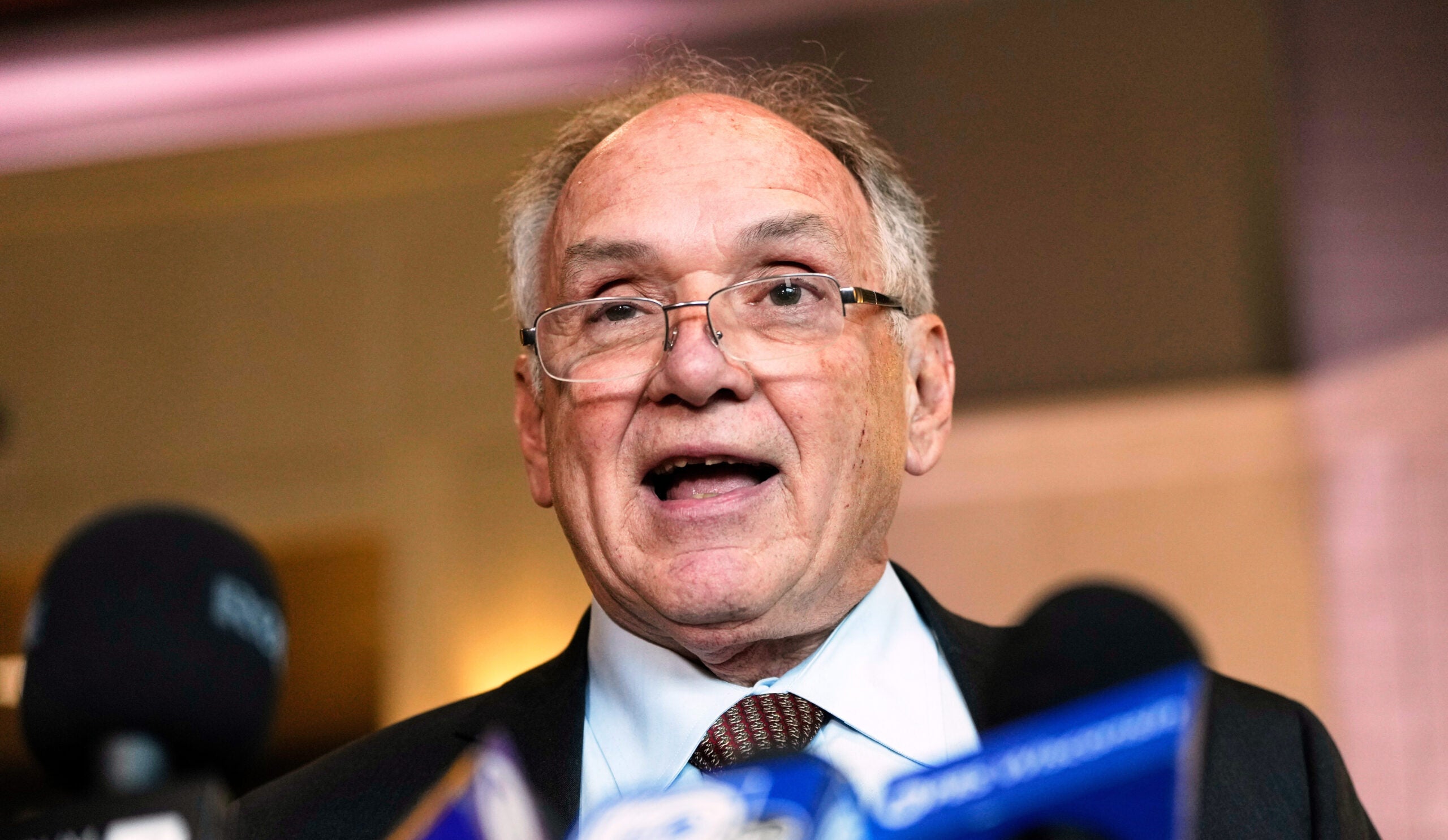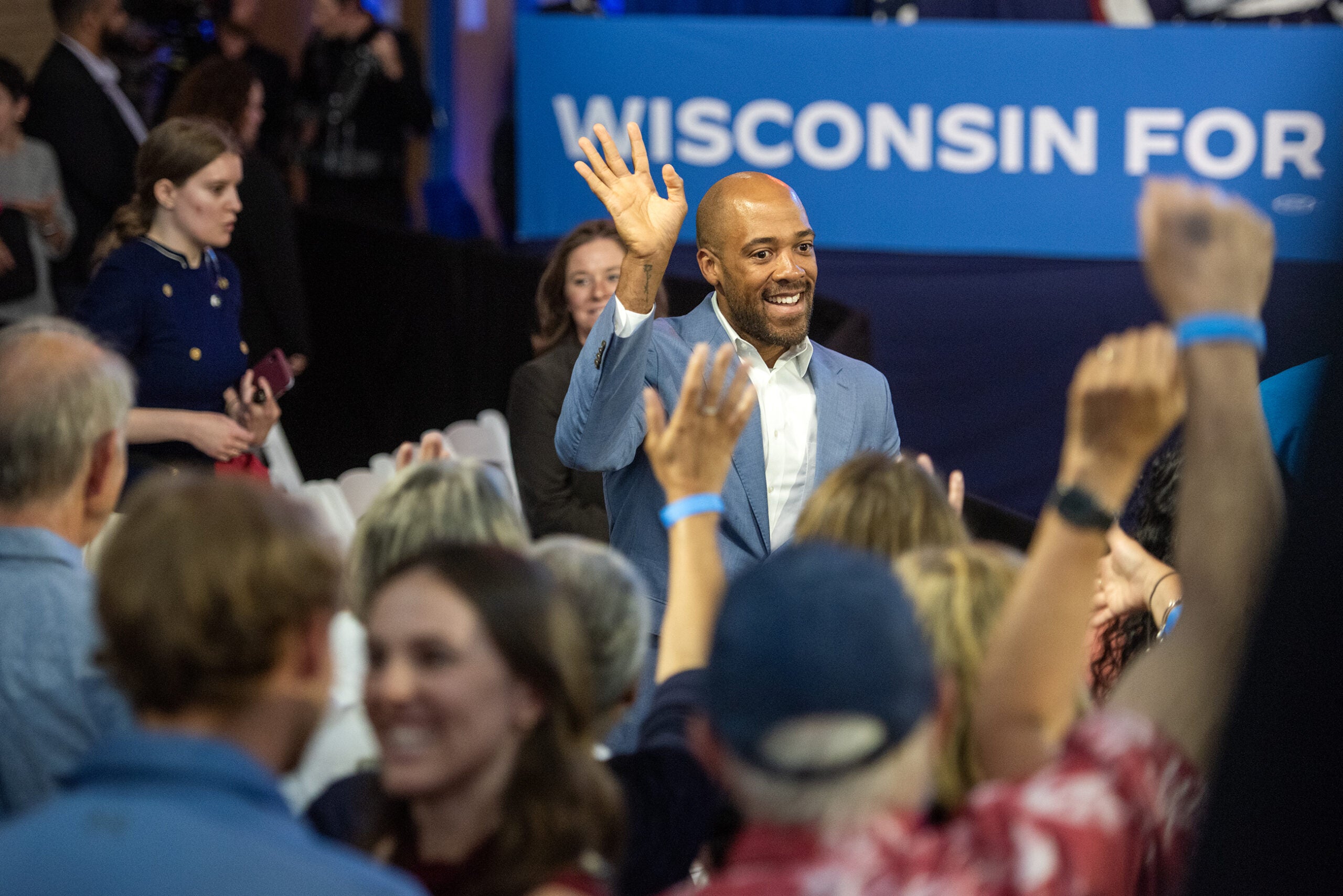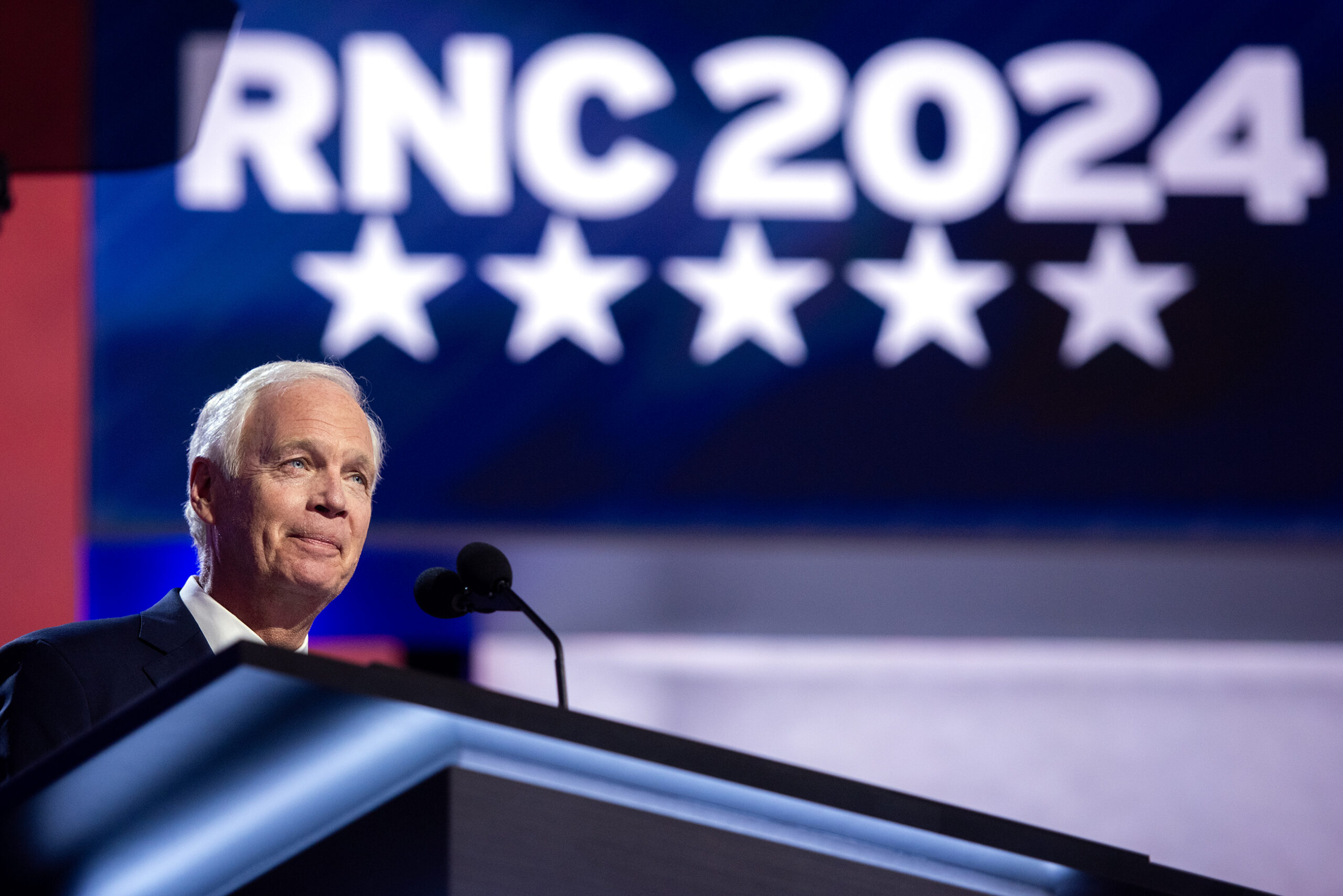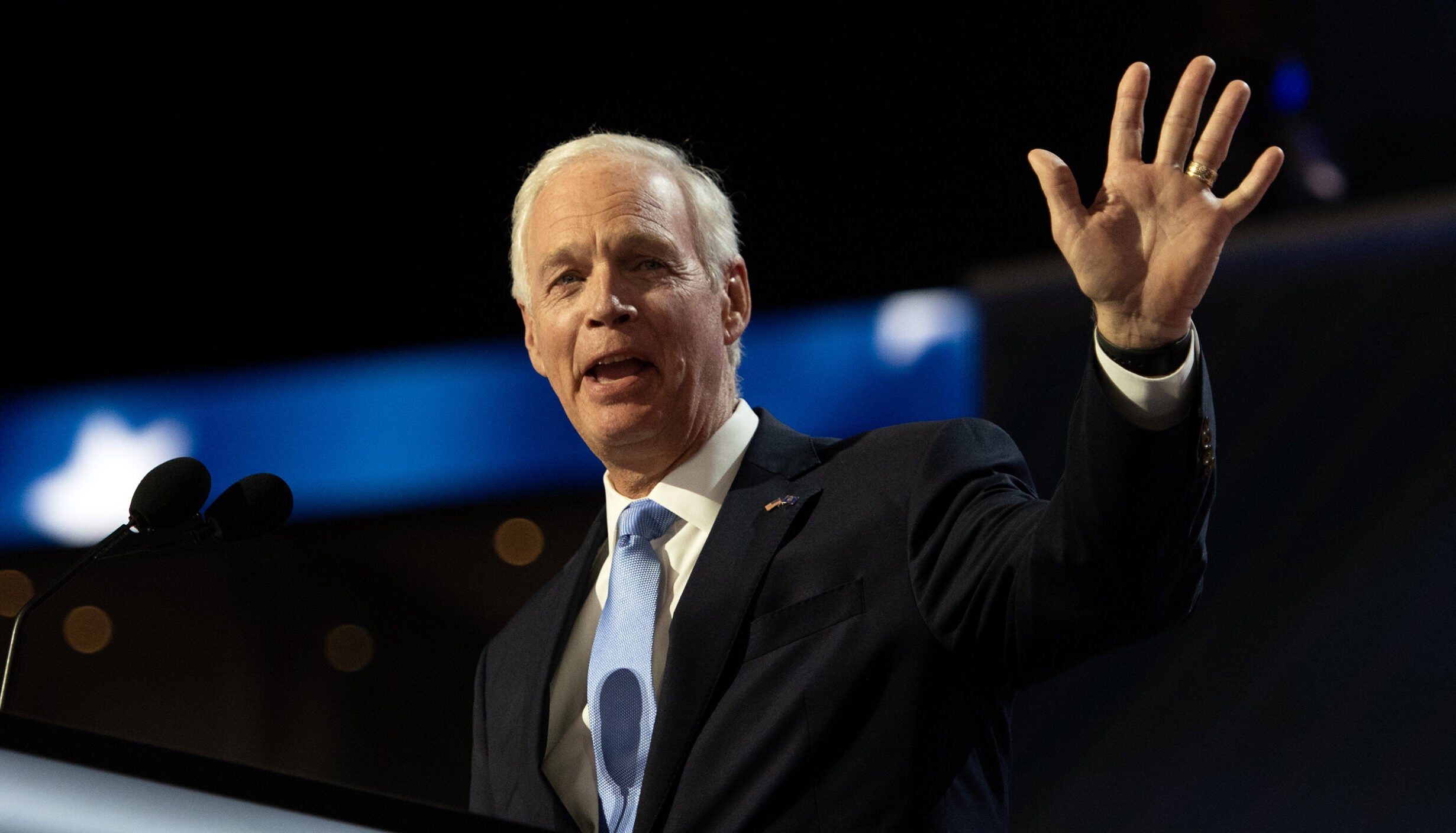Republican U.S. Sen. Ron Johnson has won reelection to a third term, narrowly defeating Democratic Lt. Gov. Mandela Barnes.
The Associated Press called the race for Johnson at 11:46 a.m. Wednesday as the senator led Barnes by 27,374 votes. With 98 percent of votes counted, AP results showed Johnson defeating Barnes 50.5 percent to 49.5 percent. The AP called the race after Johnson claimed his win earlier in the morning and other national media outlets such as NBC News, CBS News, and CNN projected Johnson would win.
The lieutenant governor joined supporters in Milwaukee at noon to make remarks on the U.S. Senate race. Barnes did not officially concede the race Tuesday night or Wednesday morning as he waited for all the votes to be counted.
News with a little more humanity
WPR’s “Wisconsin Today” newsletter keeps you connected to the state you love without feeling overwhelmed. No paywall. No agenda. No corporate filter.
Prior to several outlets projecting him as the winner, Johnson, who will now serve his third six-year term, said in a written statement that the corporate media refused to call a race that is over.
“There is no path mathematically for Lt. Gov. Barnes to overcome his 27,374 vote deficit. This race is over,” Johnson said in the statement.
“Truth has prevailed over lies and the politics of personal destruction. I want to thank my family and everyone who supported me and worked so hard to save this U.S. Senate seat. I will do everything I can to help make things better for Wisconsinites and to heal and unify our country,” he continued.
The U.S. Senate race in the battleground state of Wisconsin is among closely watched contests on the national scene as Republicans hoped to gain seats in the U.S. House and Senate. National media reports say the red wave that Republicans hoped for in this year’s midterm elections has been downgraded to more of a trickle. Democrats won or held onto key seats, including John Fetterman’s win over Republican Mehmet Oz in Pennsylvania.
At Johnson’s election night watch party in Neenah, the crowd was in high spirits throughout the evening giving loud cheers as they watched Fox News election coverage of the race. When results started trickling in around 8:30 p.m. Tuesday, Barnes took an early lead over Johnson, but the Republican slowly closed the gap as more of the state’s precincts reported. As Johnson opened a lead, it sent the Republican incumbent’s supporters into a frenzy.
After midnight, the gap between Barnes and Johnson closed slightly and the audience in Neenah became less energetic. Republican strategist Brian Schimming addressed the crowd a couple of times, telling them the Johnson campaign was waiting for a national call on the race. On two large screens, the audience at the Johnson event quietly watched Fox News election coverage and let out loud groans and boos when Democrats were projected to win other high-profile federal races.
The crowd in Neenah cheered to life again when Johnson took the stage just after 1 a.m.

“We’ve looked very closely at the numbers,” said Johnson. “We feel very confident that there’s no way that they can really make up that gap. But, you know, I’m not going to declare victory until all the numbers are in. But I just want to give you guys the sense that this race is over.”
Johnson struck a somber note when reflecting on the closeness of his race.
“I do believe that this time truth has prevailed over the lies, over the character assassination,” Johnson said. “But what I will say, unfortunately, it’s still so close. And, that’s a little depressing, isn’t it?“
Barnes did not take the stage on election night. His campaign released a statement saying it has known all along this race “would be incredibly close.”
“No matter what anyone says, we are committed to making sure every vote is counted. We will wait and see what the Wisconsin voters have decided after all their voices are heard,” the statement said.
At the beginning of the election cycle, Johnson was seen as one of the most vulnerable Republican incumbents in the U.S. Senate. He pulled ahead of Barnes in recent polling after a September onslaught of negative ads that painted Barnes as a soft-on-crime, radical liberal.
Johnson’s latest margin was in line with his two-point lead over Barnes in a Nov. 2 Marquette University Law School poll.
Johnson, a former plastics company executive from Oshkosh, was first elected in 2010, defeating former Democratic U.S. Sen. Russ Feingold in a Republican-wave election. Johnson promised to be a “citizen legislator” and serve just two terms. On Jan. 9, he announced a run for a third term, stating his decision to do so was based on a belief that “America is in peril.”
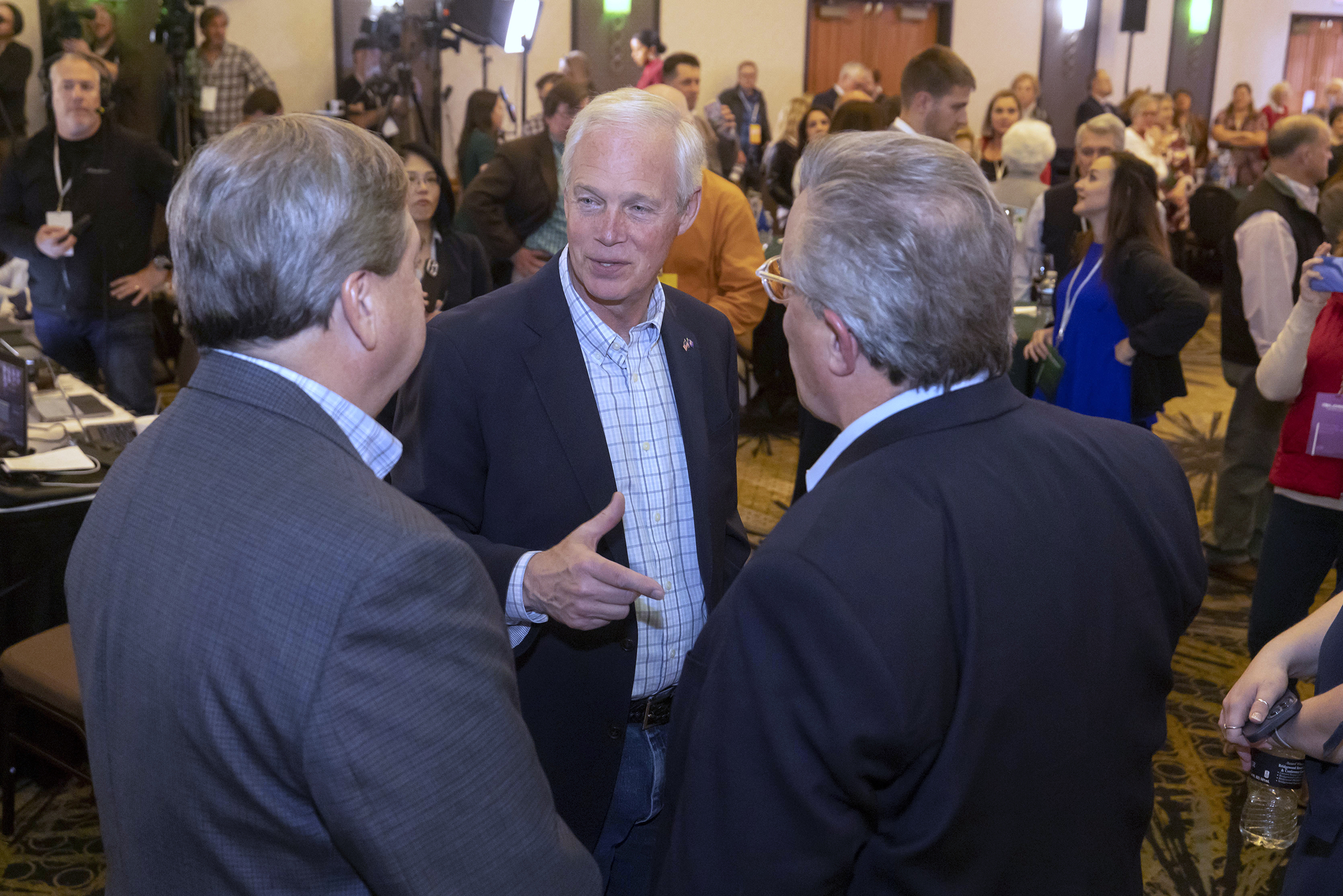
Johnson has long been known as a polarizing and controversial figure in politics who made headlines for pushing drugs like hydroxychloroquine and ivermectin as early treatment options during the COVID-19 pandemic. He’s also been a leading skeptic of COVID-19 vaccines making false or misleading claims about the shots.
The senator has been tied to the fake elector scheme, which is being investigated by the U.S. Department of Justice, after text messages came to light showing Johnson’s office tried to get slates of fake electoral ballots from Wisconsin and Michigan to former Vice President Mike Pence on Jan. 6, 2021. Since then, Johnson has hired one of Wisconsin’s 10 fake electors to work for his reelection campaign, and he’s spent more than $20,000 for legal consultation with a Wisconsin law firm that assisted former President Donald Trump’s efforts to overturn the state’s 2020 election results.
Johnson has downplayed the violent insurrection at the U.S. Capitol that day on Jan. 6, where Trump supporters assaulted Capitol police officers as they tried to stop Congress from certifying President Joe Biden’s 2020 victory. Johnson has compared the rioters to tourists and during a presentation to Milwaukee Rotary Club in early October, Johnson said calling the attack an armed insurrection is inaccurate.
Throughout the 2022 campaign cycle, Marquette polling showed a majority of respondents in Wisconsin had a negative view of Johnson. That was still the case in the law school’s final pre-election poll, which found 43 percent of those surveyed had a favorable opinion of Johnson and 46 percent had an unfavorable view.
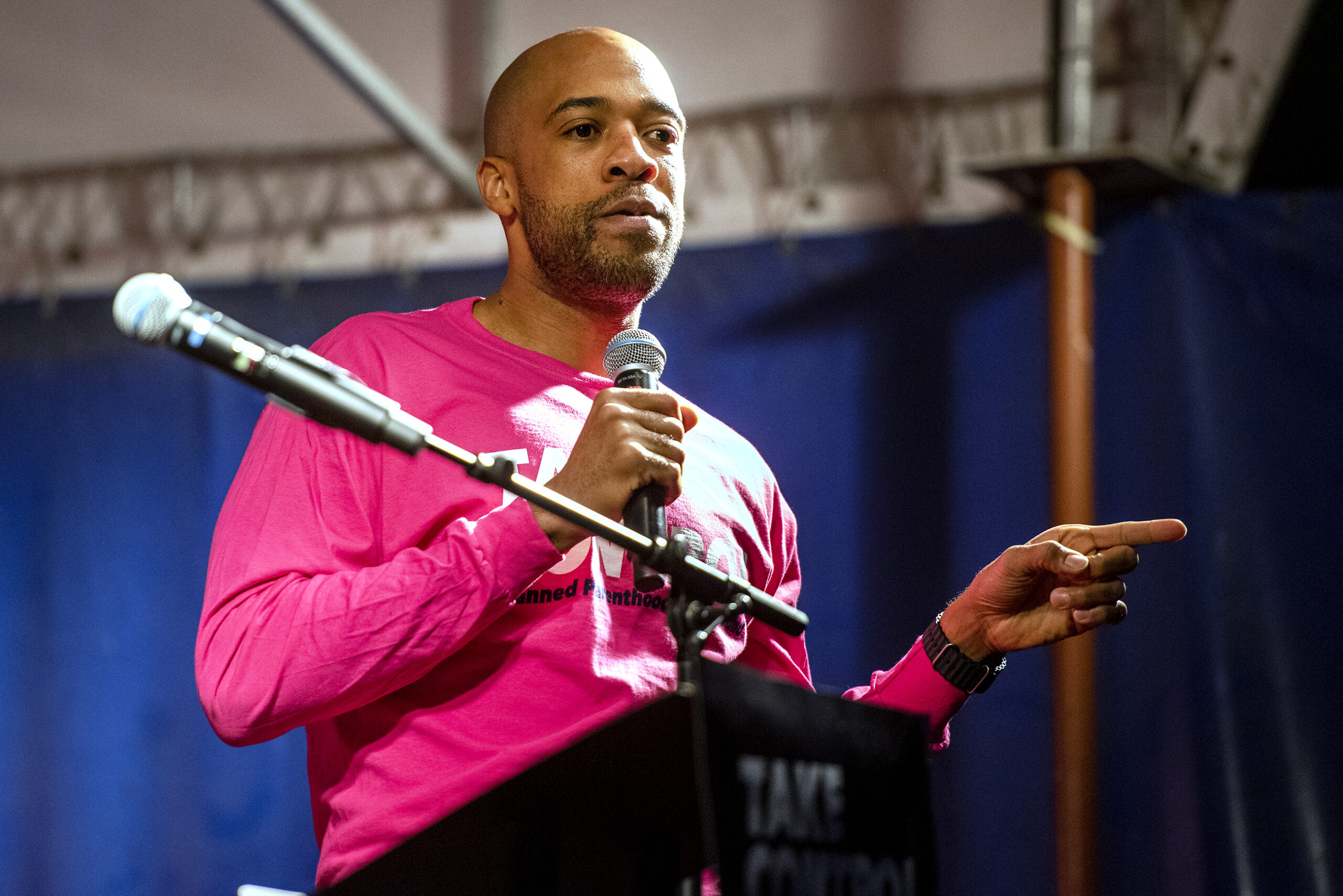
After Barnes won an all but uncontested U.S. Senate Democratic primary in August, the lieutenant governor led Johnson by 7 percentage points in Marquette polling. Barnes’ lead disappeared after Johnson’s campaign and Republican groups went on the attack with negative ads. The race was one of the most expensive election contests in the country, according to a firm that tracks political spending.
Barnes’ campaign and allied outside Democratic groups launched a series of attacks against Johnson painting him as an out-of-touch millionaire who worked to secure tax cuts for himself and billionaire donors in 2017. In early October, Barnes launched a “Ron Against Roe” tour of Wisconsin to highlight Johnson’s longtime support for national abortion bans.
In response, Johnson said he would like to see Wisconsin’s 1849 abortion ban changed to allow exemptions for instances of rape and incest. He said the best way to do that would be by allowing Wisconsinites to settle the abortion issue via a direct referendum. Currently, Wisconsin voters cannot change laws by direct referendum. In order to do so, the Republican-controlled state Legislature would need to pass a constitutional amendment.
Editor’s note: WPR’s Jonah Chester, Joe Schulz and Andrea Anderson contributed reporting to this story.
Wisconsin Public Radio, © Copyright 2025, Board of Regents of the University of Wisconsin System and Wisconsin Educational Communications Board.



